Business
How Tesla defined a new era for the global auto industry

FRANKFURT/BEIJING/DETROIT (Reuters) – Tesla Inc’s (TSLA.O) rapid rise to become the world’s most valuable carmaker could mark the start of a new era for the global auto industry, defined by a Silicon Valley approach to software that is overtaking old-school manufacturing know-how.
Tesla’s ascent took many investors by surprise. But executives at Daimler AG (DAIGn.DE), the parent company of Mercedes-Benz, had a close-up view starting in 2009 of how Tesla and its chief executive Elon Musk were taking a new approach to building vehicles that challenged the established system.
Daimler, which bears the name of the man who invented the modern car 134 years ago, bought a nearly 10% Tesla stake in May 2009 in a deal which provided a $50 million lifeline for the struggling start-up.
That investment gave Mercedes engineers an inside view of how Musk was willing to launch technology that wasn’t perfect, and then repeatedly upgrade it, using smartphone style over-the-air updates, paying little regard to early profitability.
Mercedes engineers helped Tesla develop its Model S luxury sedan in exchange for access to Tesla’s partially hand-assembled battery packs, but in 2014 Daimler decided to sell their stake amid doubts Tesla’s approach could be industrialised at scale.
Tesla would go on to pioneer new approaches in manufacturing, designs in software and electronic architecture which enable it to introduce innovations faster than rivals, leaving analysts to draw comparisons with Apple (AAPL.O).
Three people directly involved with the Mercedes side of the collaboration said the brief partnership highlighted the collision of old and new engineering cultures: the German obsession with long-term safety and control, which rewarded evolution, and the Silicon Valley carmaker’s experimental approach which embraced radical thinking and fast innovation.
“Elon Musk has been walking on the edge of a razorblade in terms of the aggression with which he pushes some technologies,” said a former Mercedes engineer who worked on the partnership.
By contrast, Mercedes and other established automakers are still not comfortable about releasing a new technology, such as partially automated driving, without years of testing.
Tesla did not respond to requests for comment.
Investors favour the Tesla model, in an industry undergoing fundamental and dizzying change even though the U.S. carmaker will face an onslaught of competing electric vehicles from established automakers during the next few years.
They are putting their money on Musk and his company, even though Mercedes-Benz alone sold 935,089 cars in the first half of 2020, dwarfing the 179,050 delivered by Tesla in the same period.
Today, Tesla is worth nearly $304.6 billion, more than six times Daimler’s 41.5-billion-euro ($47.7 billion) market capitalisation.
Two cultures collide
Daimler and Tesla began collaborating after Mercedes engineers, who were developing a second-generation electric Smart car, bought a Tesla Roadster. They were impressed by the way Tesla packaged batteries, so arranged a visit to Silicon Valley to meet Musk in January 2009 and ordered 1,000 battery packs.
The collaboration expanded. At a joint press conference in the Mercedes-Benz museum in Stuttgart in May 2009, Tesla said the partnership would “accelerate bringing our Tesla Model S to production and ensure that it is a superlative vehicle”.
For its part, Mercedes wanted to use Tesla’s batteries to power an electric version of its compact Mercedes-Benz B-Class. The Tesla Model S would hit the road in 2012. An electric B-Class, arrived in showrooms two years later.
Despite having batteries supplied by Tesla, the Mercedes had a shorter operating range after Daimler engineers configured the B-class more conservatively to address their concerns about long-term battery degradation and the risk of overheating, a second Daimler staffer who worked on the joint projects told Reuters.
German engineers found that Tesla engineers had not done long-term stress tests on its battery. “We had to devise our own programme of stress tests,” the second Daimler engineer said.
Before starting production of a new car, Daimler engineers specify a “Lastenheft” – a blueprint laying out the properties of each component for suppliers. Significant changes cannot be made once the design is frozen.
“This is also the way you can guarantee that we will be profitable during mass production. Tesla was not as concerned about this aspect,” the second Daimler source said.
Daimler’s engineers suggested the underbody of the Model S needed reinforcing to prevent debris from the road puncturing a battery pack, the first Daimler engineer said.
To quash doubts about safety and security, following a series of battery fires, Tesla raised the ride height of its vehicles, using an over-the-air update, and a few months later, in March 2014, said it would add a triple underbody shield to new Model S cars and offered to retrofit existing cars.
Musk was able to make adjustments quickly thanks to Tesla’s ability to burn through more cash during development.
“At Mercedes you can make such adjustments every three years at best,” the engineer said.
The Model S, a four-door electric sedan would go on to outsell the flagship Mercedes-Benz S-Class in the United States in May 2013, and outstrip S-Class deliveries globally by 2017.
Musk: Innovate or go
Musk’s relentless focus on innovation explains, in part, why he has disrupted the traditional auto world. In an interview here at the 2020 Air Warfare Symposium, published on YouTube, he was asked about the importance of innovation among his employees.
“We certainly need those that do advanced engineering to be innovative,” Musk said. “The incentive structure is set up … such that innovation is rewarded. Making mistakes along the way does not come with a big penalty. But failure to try to innovate at all … comes with a big penalty. You will be fired.”
Established automakers are playing catch-up to Tesla, designing their own software operating systems and dedicated electric cars.
Mercedes will release its EQS next year – a four-door limousine built on a dedicated electric vehicle platform, with an operating range of 700 km. A new version of the Mercedes S-Class, which will have combustion and hybrid powertrains and semi-autonomous driver assistance systems, is due this year.
From an investor perspective, traditional players face billions of dollars in restructuring costs as they transform product lines and factories to move away from internal combustion technology
“No one is going to give an OEM (established automaker) a five-year window to say … you can totally retool your business, and I am going to buy in and fund this journey,” said Mark Wakefield, co-leader of automotive and industrials practice at consulting firm AlixPartners.
Start-ups, however, get time from investors to learn, make mistakes and grow, he added.
Investors are betting on Tesla’s ability to scale up manufacturing just as they once backed Toyota Motor Corp (7203.T), which defined the auto industry’s last era with its mastery of highly efficient, high-quality lean production.
Toyota overtook the market capitalisation of former industry leader General Motors (GM.N) in 1996, though it wasn’t until 2008 that it sold more vehicles than its Detroit rival.
The Japanese giant also cultivated ties with Tesla, with the U.S. startup helping it design an electrified RAV4 compact sports utility vehicle under a 2010 deal.
Toyota was impressed by the speed with which Tesla came up with the new design, but ultimately decided Tesla’s methods were not suitable for mass production by a mainstream manufacturer when Toyota’s standards for product quality and durability were applied, two company insiders familiar with the partnership said.
Toyota said the joint project involved cooperation on the development of electric cars, parts and production system.
“Toyota accomplished what the project set out to achieve, and it ended in October 2014 after Tesla delivered roughly 2,500 electric powertrain systems over three years” for an electrified RAV4 crossover SUVs, a spokeswoman said.
Both the Toyota and Daimler collaborations were agreed before the Volkswagen (VOWG_p.DE) emissions-cheating scandal in 2015, which prompted a global regulatory backlash and forced carmakers to step up investments in electric cars.
“That was all before dieselgate, which changed the economics of electric and combustion-engined cars,” a senior Daimler manager said. “Tesla has a lead. Let’s see if they can scale up.”
Reporting and photo: Reuters
Action
Ataraxis Grand & Spa hosts integrated work-and-dive corporate retreat in Fuvahmulah
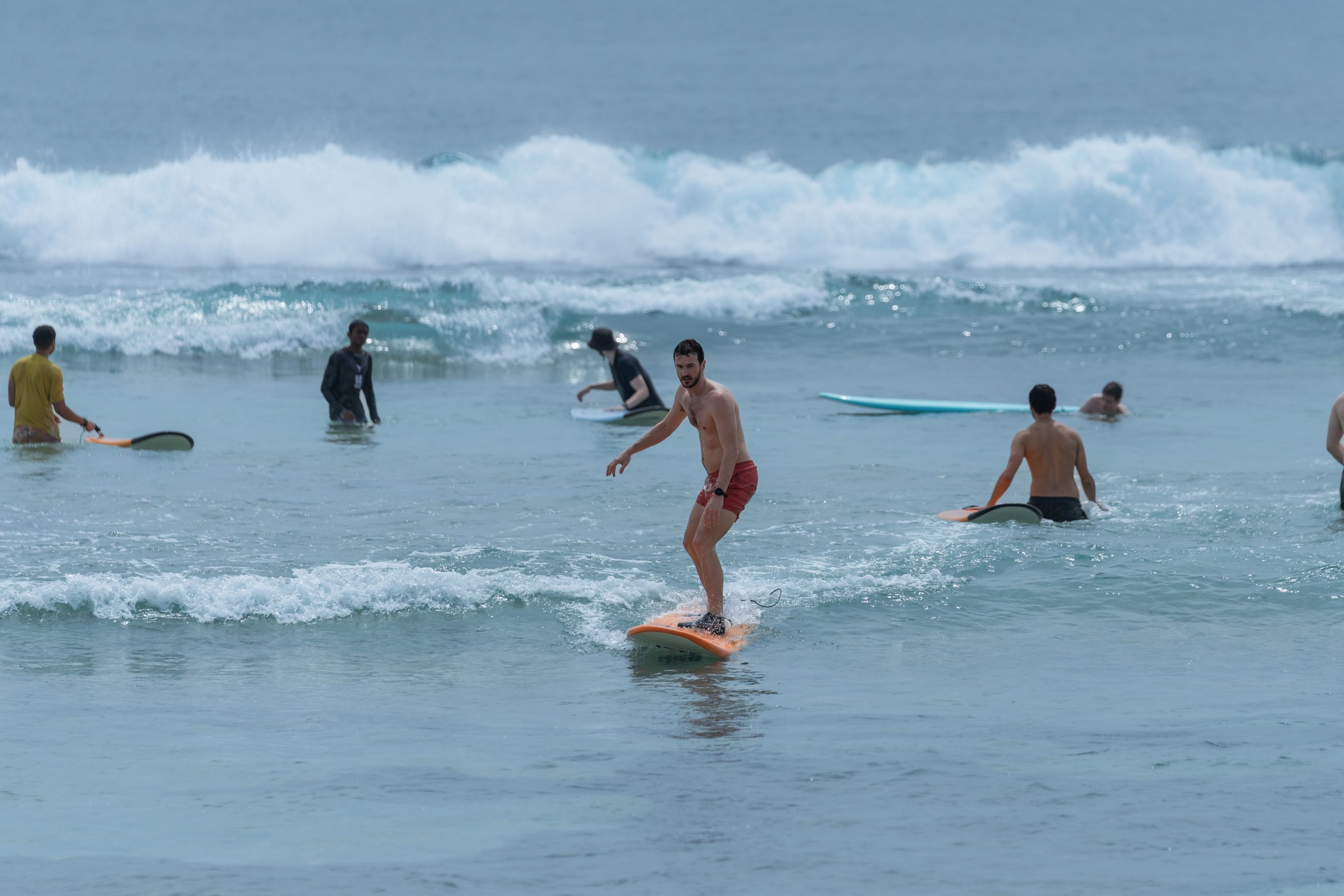
Ataraxis Grand & Spa recently hosted a week-long, closed corporate offsite in Fuvahmulah for a US-based artificial intelligence company, highlighting the island’s growing suitability for integrated work-and-experience retreats. The retreat brought a group of 36 international professionals to the property, which was reserved exclusively for the programme.
Designed as a private company offsite, the stay combined structured daily work sessions with guided diving and beginner-friendly surf experiences, creating a balanced format that blended focused collaboration with physical reset.
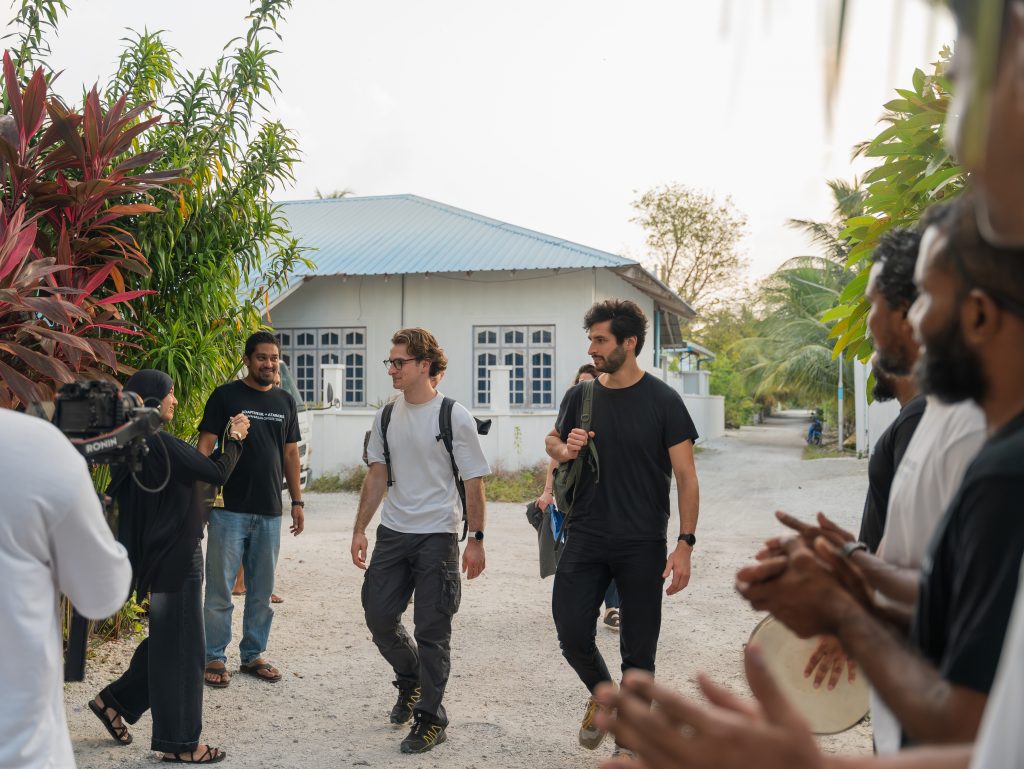
A notable component of the programme was dive training and certification. During the retreat, 17 participants completed their Open Water certification, while a further six undertook the Advanced Open Water course, with training and dives scheduled alongside work sessions as part of the integrated itinerary.
Throughout the week, participants worked on-site using dedicated shared spaces supported by reliable high-speed internet, allowing meetings, informal collaboration and scheduled activities to take place within a single, uninterrupted environment. This setup enabled teams to move seamlessly between work periods and organised ocean activities without leaving the property.
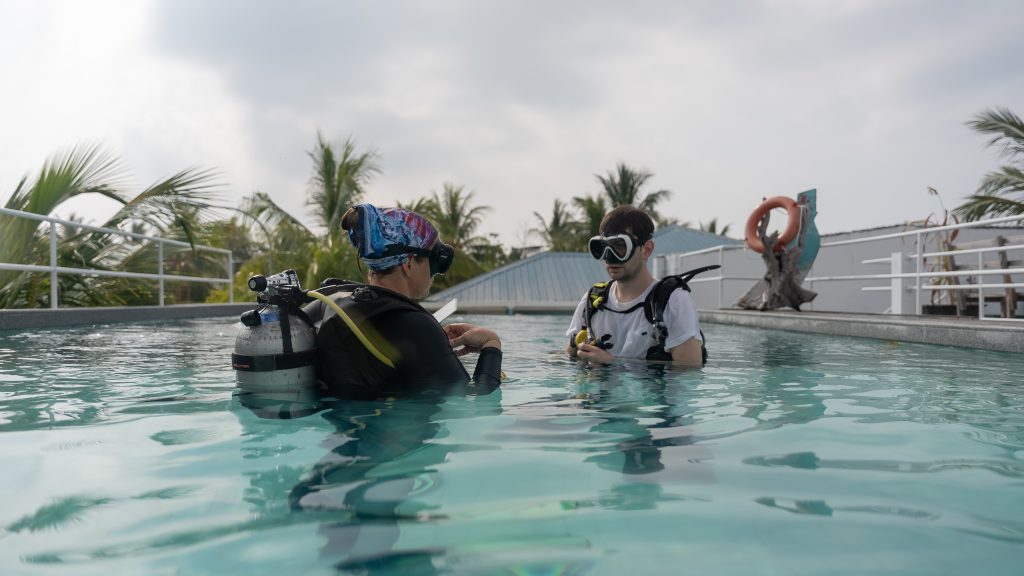
Fuvahmulah’s natural and operational advantages formed a key part of the retreat’s appeal. As one of the Maldives’ largest inhabited islands, it offers immediate access to pelagic dive sites, internationally recognised shark diving and surf breaks suitable for instruction, alongside the infrastructure required to support extended group stays.
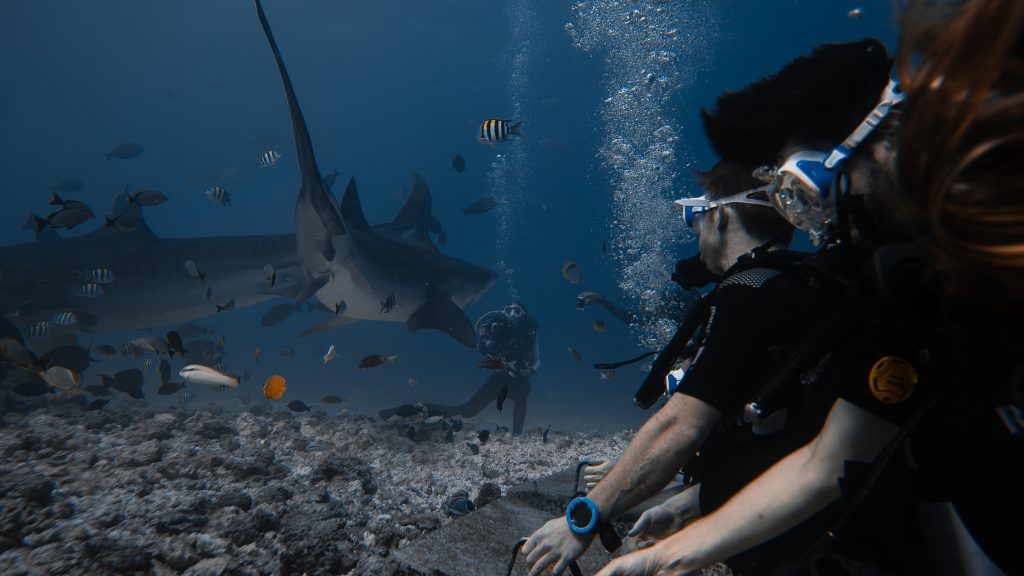
The offsite reflects a growing preference among technology and knowledge-sector teams for small-scale retreats that prioritise concentrated work environments and team cohesion over traditional conference formats. Such programmes typically involve longer stays and higher per-capita spend, aligning with sustainable, quality-driven tourism models.
The retreat also demonstrates how locally operated properties such as Ataraxis Grand & Spa are supporting this shift by delivering unified environments where accommodation, workspaces, connectivity and curated experiences operate as a single programme rather than separate services.
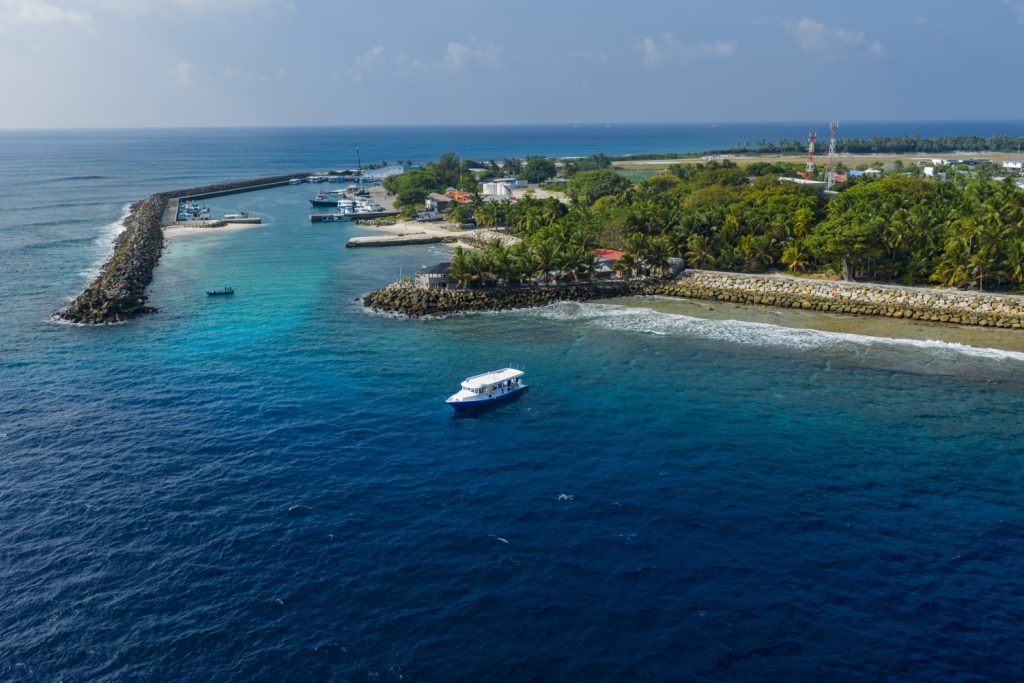
As organisations continue to explore alternative formats for strategy sessions, team resets and creative offsites, Ataraxis Grand & Spa’s experience positions Fuvahmulah as an increasingly viable destination for integrated corporate retreats.
Ataraxis Grand & Spa offers work-and-dive retreat programmes in Fuvahmulah that combine accommodation, dedicated workspaces, high-speed connectivity and organised diving and surfing.
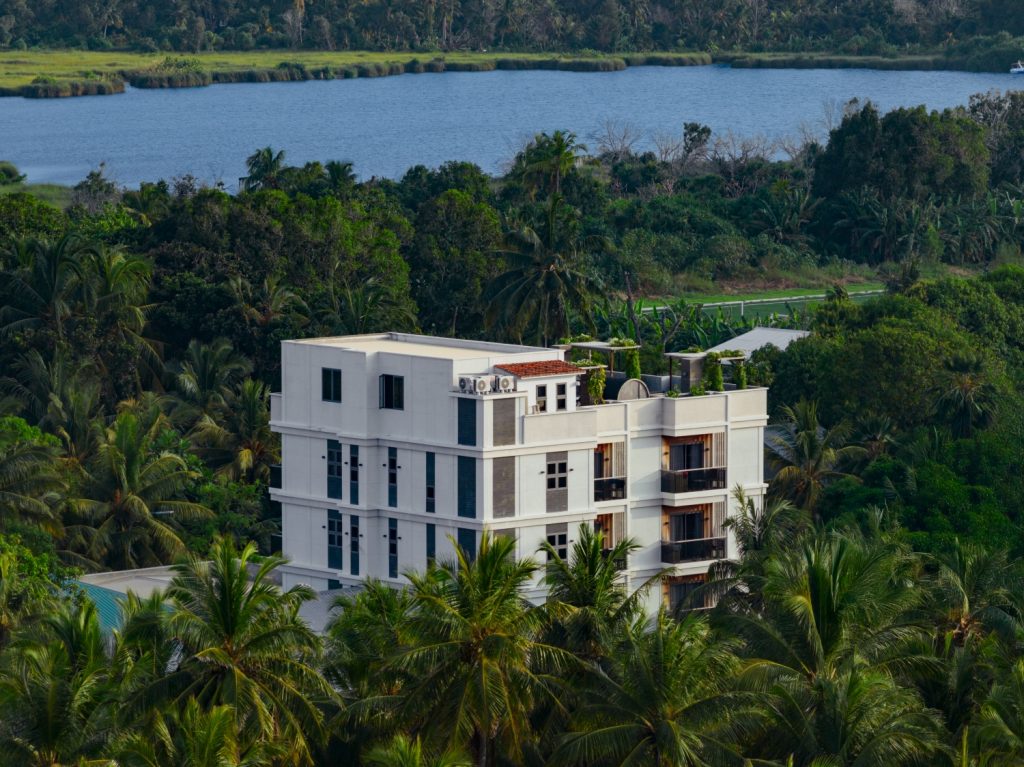
Further information on retreat formats and dive-inclusive stays is available via the Ataraxis Grand & Spa website.
Business
Bestbuy Maldives, Atmosphere Core elevate chef training with Michelin-star masterclass
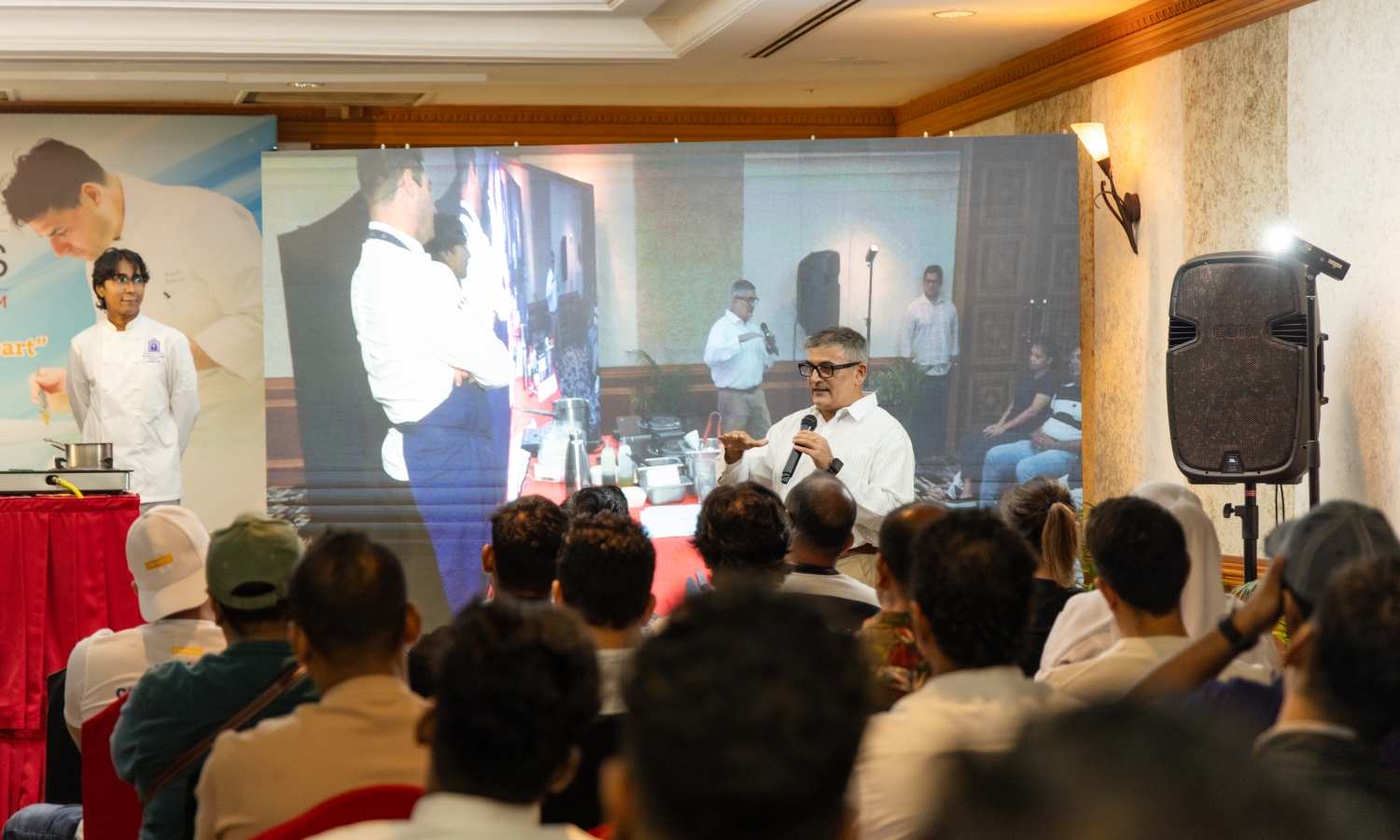
Bestbuy Maldives (BBM) brought together 100 chefs from leading resorts and restaurants across the country on 24 November for an exclusive culinary masterclass led by Italian One-Michelin-Star Chef Pasquale Palamaro. Held at Hulhule Island Hotel (HIH), the full-house session marked a key highlight of the ongoing “Mediterranean Soul, Maldivian Heart” culinary series presented by Atmosphere Hotels & Resorts in collaboration with BBM.
The masterclass formed the Malé City chapter of the broader programme, which features a lineup of events hosted at RAAYA by Atmosphere and VARU by Atmosphere throughout November 2025. The HIH masterclass served as a platform for professional development, skill exchange, and hands-on learning for chefs from some of the Maldives’ most distinguished culinary teams.
Chef Pasquale, celebrated for his work at Indaco Restaurant in Amalfi, guided participating chefs through a series of live demonstrations that reflected his signature philosophy—one that emphasises intuition, simplicity, and a deep respect for natural ingredients.
“Cooking, to me, is a dialogue with nature — an art of transforming simplicity into beauty. Bringing Indaco’s spirit to the Maldives is an opportunity to merge two coasts and two cultures through taste, technique, and emotion,” he shared during the programme.
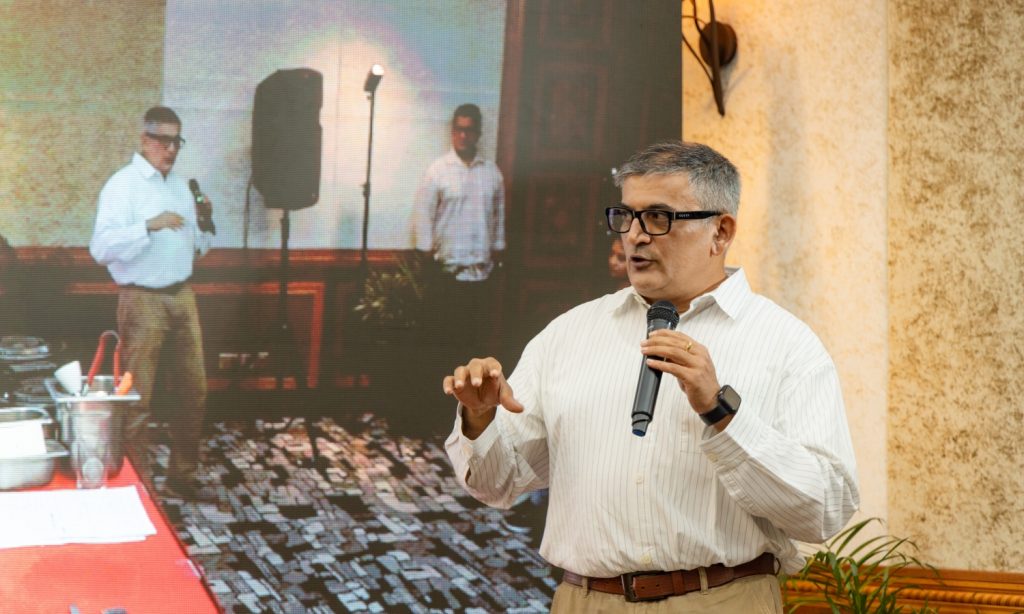
Participants explored Mediterranean-inspired methods adapted to Maldivian produce, with Chef Pasquale showcasing dishes rooted in coastal heritage and contemporary craftsmanship. The session also encouraged discussion around ingredient integrity, sustainability-led cooking, and the evolving expectations of today’s luxury diners.
The fully subscribed masterclass reaffirmed BBM’s long-running commitment to cultivating professional excellence within the Maldives’ hospitality sector.
As the authorised distributor of globally renowned culinary and F&B brands, BBM has built a reputation for its Masterclass Series, which brings international expertise to local professionals through practical workshops and high-level training. This latest edition added a Michelin-starred perspective to the growing body of knowledge BBM continues to nurture across the industry.
Ali Afrah Hassan, Head – Human Resources, Administration & Corporate Affairs at BBM, highlighted the importance of consistent capacity building in the sector.
“This masterclass reflects our ongoing commitment to strengthening the skills of the Maldivian culinary community. By creating opportunities for chefs to learn directly from international experts, we help broaden professional exposure and support the industry’s growth. BBM will continue to invest in platforms that uplift local talent and contribute to raising the overall standard of hospitality in the Maldives,” he said.
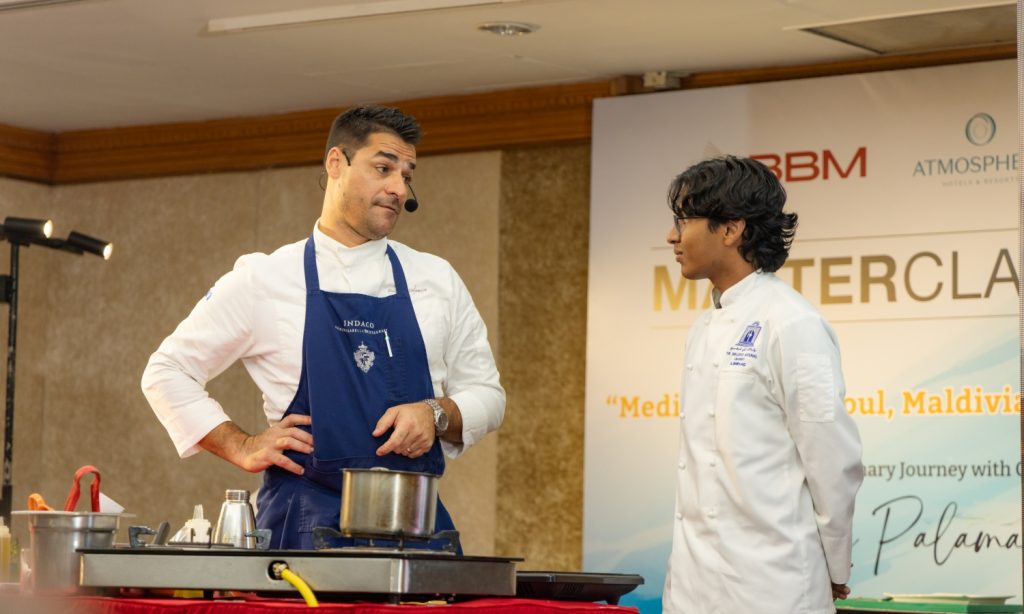
The masterclass follows two immersive days at RAAYA by Atmosphere earlier in the month, where guests joined farm experiences, tasting sessions, and a hands-on workshop before a five-course dinner curated by Chef Pasquale. The series will continue with a 4-Hands Dinner at Kaagé on 27 November and a masterclass with a five-course dinner at NÜ on 28 November at VARU by Atmosphere.
Anupam Banerjee, Vice President, Food & Beverage at Atmosphere Core, emphasised how the collaboration bridges traditions and culinary ideologies.
“All our island resorts have long been recognised for their culinary offerings,” he noted. “Through Chef Pasquale’s artistry and our island-inspired ethos, we are crafting an evocative dialogue between Mediterranean and Maldivian gastronomies that not only captivates the palate but also champions environmental stewardship and celebrates the cultural richness of both regions.”
For attending chefs, the session offered more than demonstrations—it provided the rare opportunity to learn directly from a Michelin-starred figure whose approach blends innovation with a respect for locality. Many participants described the workshop as an opportunity to refine technique, discover new applications for familiar ingredients, and build valuable connections within the professional community.
With strong engagement and enthusiastic feedback from attendees, the masterclass stands as another milestone in BBM’s long-standing role in elevating culinary standards in the Maldives.
Business
2 decades of culinary excellence: BBM’s founding legacy with Hotel Asia continues in 2025
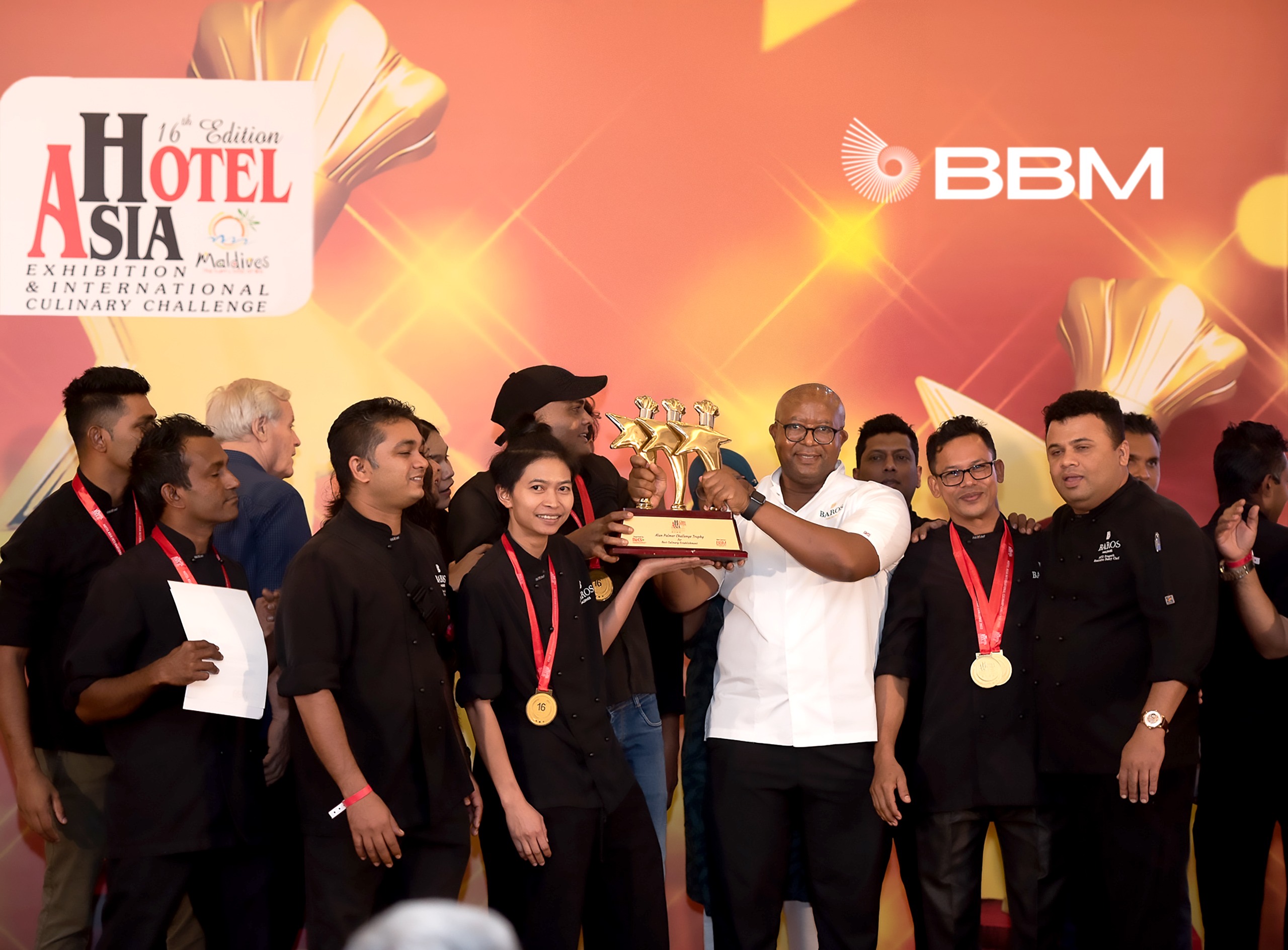
Hotel Asia Exhibition and International Culinary Challenge is referred to be the hospitality industry event in the Maldives. In this year’s Culinary Challenge (19 to 22 October 2025) comprising competitions over 20 categories, most will take place at the Faculty of Hospitality and Tourism Studies, Maldives National University, and some at the Synthetic Track, Hulhumalé.
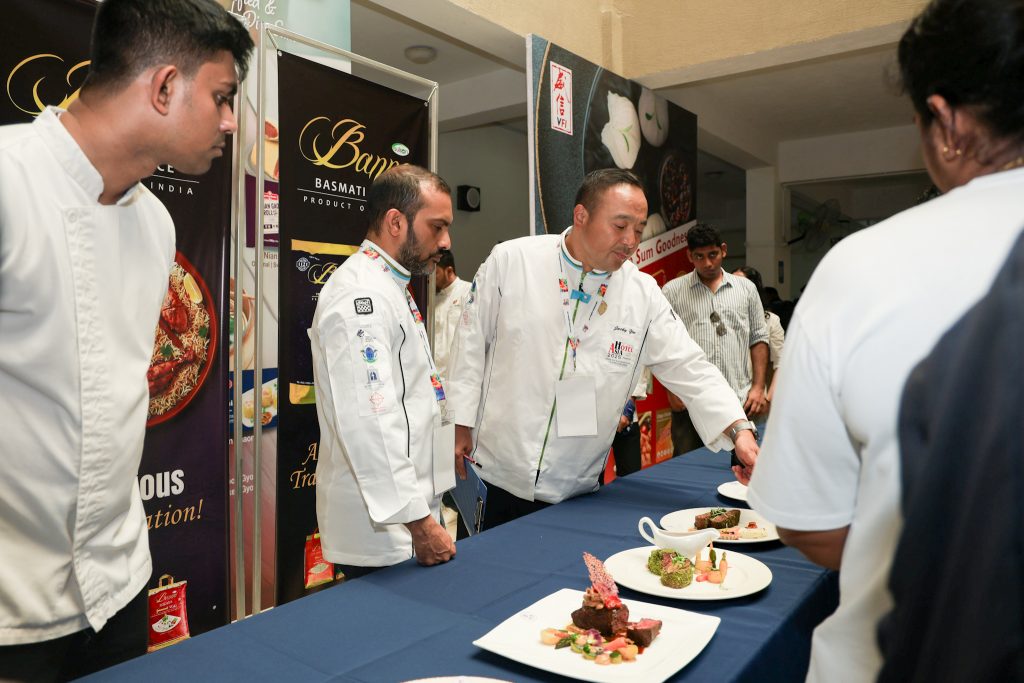
A Founding Partnership that Endures
Since the very first edition in 2001, Bestbuy Maldives (BBM) has played a central role in shaping the International Culinary Challenge into the Maldives’ most prestigious culinary platform. The event has become a cornerstone for professional development, bringing together chefs from across the Maldives to compete, learn, and showcase their craft.
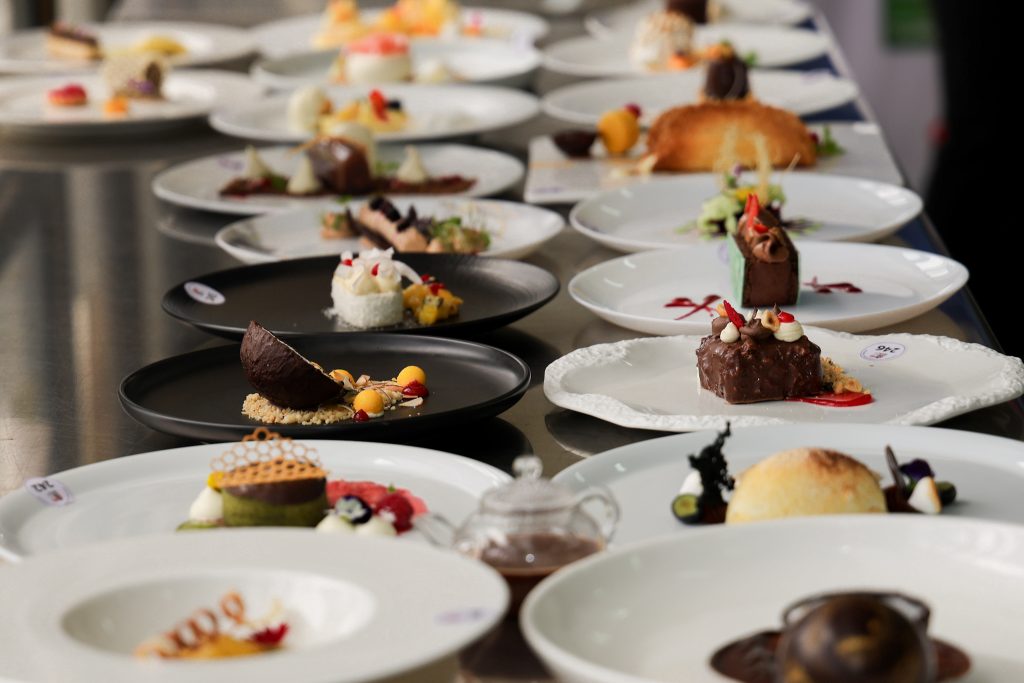
BBM and their associated Principals sponsor an overwhelming majority of categories. “From the beginning, our goal has been to create opportunities for Maldivian chefs to rise to global standards. This partnership has grown with the industry itself,” said A.V.S. Subrahmanyam, Chief Operating Officer of BBM.
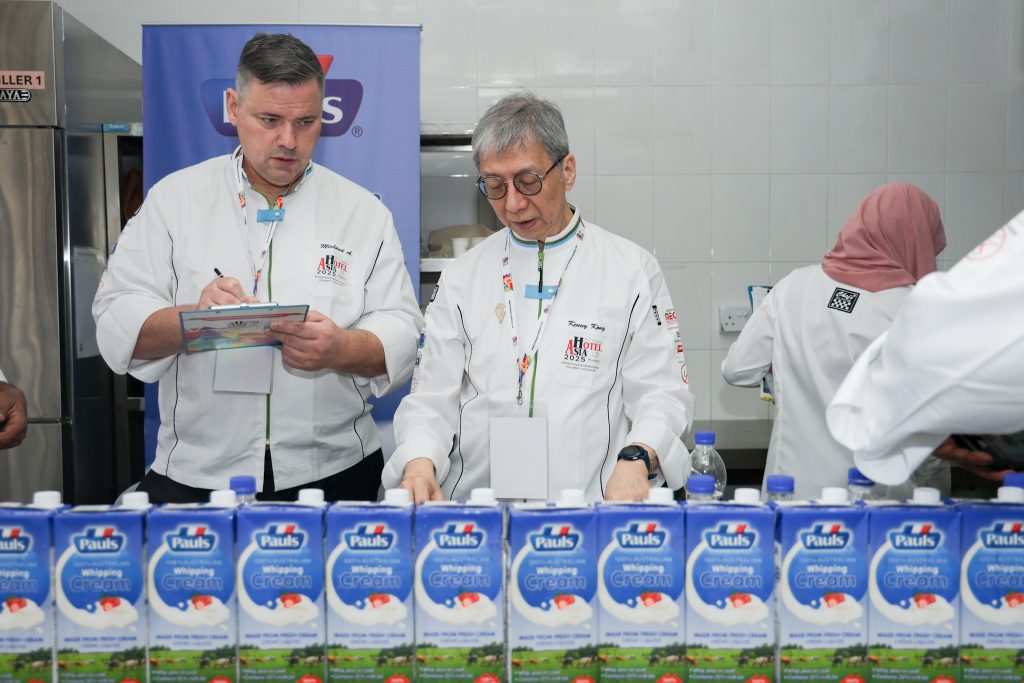
Nurturing Local Talent
BBM’s contribution extends beyond sponsorship. The company has built a long-term system for recognizing and developing local culinary talent.
- BBM Chairman’s Trophy for the Best Maldivian Competitor.
- Most Promising Young Chef Award for emerging talent.
- Global exposure programs for Maldivian chefs through sponsored participation in international events.
- Pro-bono Masterclasses with world-renowned chefs to encourage learning and innovation.
Investing in the Future of Hospitality
Through initiatives such as Building Young Talent, BBM continues to mentor aspiring professionals and support the next generation of chefs. The company also promotes inclusivity by sponsoring opportunities for female and young chefs to gain international exposure.
BBM’s industry partnerships include its role as Title Sponsor of the Hotelier Maldives Awards, celebrating excellence across the Maldivian hospitality sector.
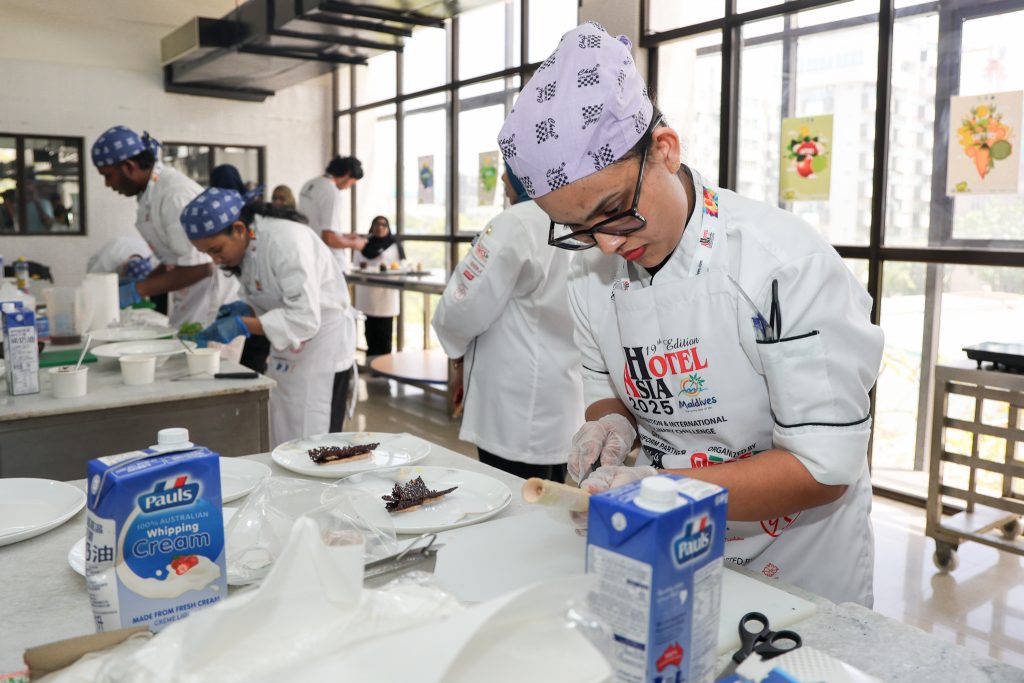
Proud Sponsors of Culinary Excellence
In 2025, BBM and its partner brands proudly sponsor 14 competition categories and 8 Main Awards, further strengthening their role in the development of culinary arts in the Maldives. Categories include Decorated Cake, Artistic Showpiece, Bread and Pastry Display, Three Desserts (Display), Desserts, Rice Dish, Asian Noodles, Team Challenge, Maldivian Dish, Creative Sandwich, Young Chef, Tea Challenge, tapas/finger food, and Iced Mocktail.
-

 Entertainment4 days ago
Entertainment4 days agoCraig David shares emotional Maldives moment after ‘Rise & Fall’ surprise at resort dinner
-
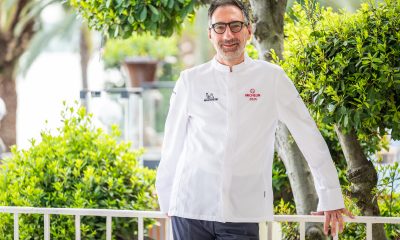
 Food1 week ago
Food1 week agoMichelin-starred Italian chef Maurizio Bufi brings Lake Garda flavours to The Ritz-Carlton Maldives, Fari Islands
-
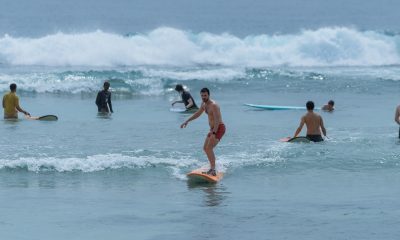
 Action1 week ago
Action1 week agoAtaraxis Grand & Spa hosts integrated work-and-dive corporate retreat in Fuvahmulah
-
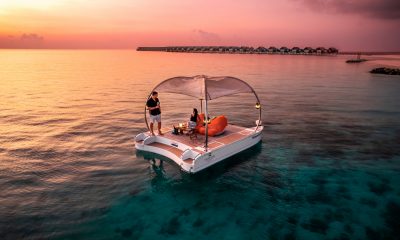
 Love1 week ago
Love1 week agoGrand Park Kodhipparu curates new ‘Romance in Paradise’ experience for couples
-

 Awards3 days ago
Awards3 days agoFuvahmulah receives Tiger Shark Dive Award at DRT Expo KL
-
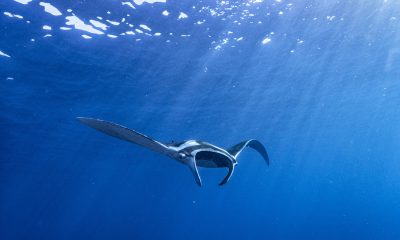
 Action1 week ago
Action1 week agoFour Seasons Landaa Giraavaru shares manta sightings forecast for 2026 and 2027
-
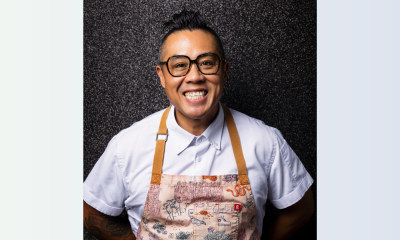
 Cooking1 week ago
Cooking1 week agoJOALI BEING partners with Chef Kelvin Cheung for Lunar New Year residency
-
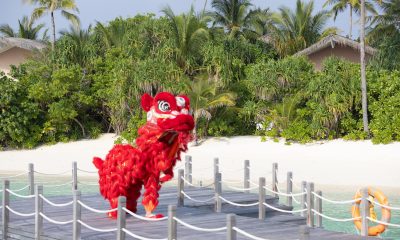
 Love1 week ago
Love1 week agoJW Marriott Maldives Resort & Spa invites couples to a season of romance and refined indulgence









